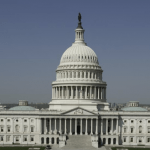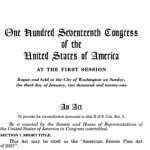The Latest Covid Relief/Stimulus Bill is Now Law – Many Americans Will Receive $600 Direct Checks in the Coming Weeks
President Trump signed the latest Covid relief/stimulus bill on December 27, 2020, allowing additional federal funding for various programs to be disbursed.
As provisions of the bill are discussed, it’s important to keep in mind not only does this bill include Covid relief provisions, but also the full federal government’s operating budget through September 30, 2021. Realistically, these are two separate pieces of legislation, combined to allow for expediency and political arm-twisting.
If you want to read the bill yourself, you can do so at this link.
We’ll only address the Covid relief/stimulus aspects of the legislation.
We published a preview of the Covid relief bill’s provisions on December 17, 2020, all of which have remained intact in the now-enacted version of the bill.
Below are the main provisions that will be pertinent to most Americans.
$600 Direct Payments
Households will receive $600 for each adult and $600 for each dependent.
Payments will be based on income from 2019: individuals with adjusted gross incomes of $75,000 or less will be eligible, as will married couples with adjusted gross incomes of $150,000 or less.
Mixed status households which include ineligible non-citizens will receive payments based on the number of eligible people in the households (the first round of stimulus payments excluded non-citizens).
Note: in a political maneuver, both President Trump, and now congressional Democrats are calling for direct payments to be $2,000 per person. There will be votes on this in the coming days. I doubt any will result in increased payments to individuals…at least at this time. But who knows.
As for the timeline for when the $600 will be disbursed into individuals’ bank accounts…sometime in January, possibly as early as the first week.
Unemployment Assistance
The federal subsidy for unemployment payments will be $300 per week (was $600 in the Cares Act that expired July 31). That extra weekly payment will be in addition to a state’s unemployment payment.
The Pandemic Unemployment Assistance program which was created in the Cares Act and provides unemployment benefits to self-employed, part-time, gig workers, etc., will be maintained, allowing for unemployment payments to those individuals to continue.
Money for the federal subsidy is available through March 14, 2021.
The bill extends to 50 weeks the period for which workers can claim benefits through both state and federal unemployment programs.
Finally, there is an additional $100 per week subsidy for workers who have both wage and self-employment income but whose basic unemployment benefits don’t consider the self-employment income.
State unemployment offices should be aware of these changes, and are in charge of implementing and disbursing the additional monies.
Rental Assistance
There is $25 billion targeted to tenants who are in arrears on rent payments.
A federal eviction moratorium is extended to January 31, 2021.
Landlords and building owners can apply for the rental assistance on behalf of tenants who meet certain eligibility requirements. The actual funds will likely come from individual state agencies dealing with housing matters. Individual tenants will not receive the government assistance.
Money for the Covid Response
Child Care
Child care providers may be eligible for grants from the $10 billion allotted for this sector.
$250 million is available for the Head Start program.
Schools
Both public and private K-12 schools and colleges have $82 billion available for Covid relief.
There are a variety of earmarks within that $82 billion for specific segments and institutions.
Covid Testing and Tracing
$22.4 billion is appropriated for states to help fund testing, tracing and Covid mitigation efforts.
Business Assistance
Airlines – $15 billion for salaries and benefits (plus $1 billion for airline contractor payrolls)
Banks – $12 billion to support small lenders focused on low-income and minority communities
Entertainment Venues – $15 billion for independent movie theaters, live entertainment venues and cultural institutions
Farms – $12 billion to crop farmers, cattle ranchers and rural communities
Rail and Transit – $1 billion to Amtrak, $14 billion for transit systems
Small Business – $325 billion total, $284 billion of which is targeted for first and second forgivable Paycheck Protection Program loans – The Wall Street Journal has an article on eligibility and how the program has changed at this link.
In all, this Covid relief/stimulus bill appropriates approximately $900 billion.
Much of it is vital to helping many Americans and U.S. small businesses stay afloat.
As with any government appropriations bill, though, there is also plenty of questionable spending.
And that’s not even considering what’s in the federal operating budget portion of this legislation. Which is likely what you will hear a lot of discussion over in the coming days.
As I’ve said in the past, this Covid relief legislation is long past due. It should have been passed over the summer. Thanks to political game-play and the presidential election, many Americans suffered needlessly.
That’s now in the past.
Americans who are out of work due to government lockdowns and Covid mitigation efforts will finally get additional financial help.
And small businesses who are hurting can tap some of the Paycheck Protection Program forgivable loans – if they qualify – to help make it to the other side of this pandemic. Those who haven’t already closed their doors, that is.
As I mentioned in the preview post on Covid relief legislation, no one should be applauding Congress on their action.
With the new Congress being seated the first week of January, some serious inward contemplation is needed by those being sworn in regarding why they are actually there.
Is it to represent the people who voted them into office, or to represent their own political interests?


